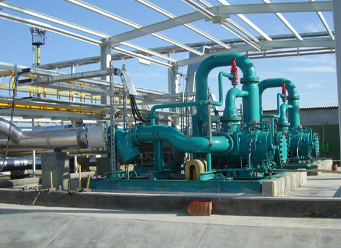English
- Afrikaans
- Albanian
- Amharic
- Arabic
- Armenian
- Azerbaijani
- Basque
- Belarusian
- Bengali
- Bosnian
- Bulgarian
- Catalan
- Cebuano
- Corsican
- Croatian
- Czech
- Danish
- Dutch
- English
- Esperanto
- Estonian
- Finnish
- French
- Frisian
- Galician
- Georgian
- German
- Greek
- Gujarati
- Haitian Creole
- hausa
- hawaiian
- Hebrew
- Hindi
- Miao
- Hungarian
- Icelandic
- igbo
- Indonesian
- irish
- Italian
- Japanese
- Javanese
- Kannada
- kazakh
- Khmer
- Rwandese
- Korean
- Kurdish
- Kyrgyz
- Lao
- Latin
- Latvian
- Lithuanian
- Luxembourgish
- Macedonian
- Malgashi
- Malay
- Malayalam
- Maltese
- Maori
- Marathi
- Mongolian
- Myanmar
- Nepali
- Norwegian
- Norwegian
- Occitan
- Pashto
- Persian
- Polish
- Portuguese
- Punjabi
- Romanian
- Russian
- Samoan
- Scottish Gaelic
- Serbian
- Sesotho
- Shona
- Sindhi
- Sinhala
- Slovak
- Slovenian
- Somali
- Spanish
- Sundanese
- Swahili
- Swedish
- Tagalog
- Tajik
- Tamil
- Tatar
- Telugu
- Thai
- Turkish
- Turkmen
- Ukrainian
- Urdu
- Uighur
- Uzbek
- Vietnamese
- Welsh
- Bantu
- Yiddish
- Yoruba
- Zulu
Telephone: +86 13120555503
Email: frank@cypump.com
Sep . 10, 2024 02:04 Back to list
Commercial Submersible Pumps - Reliable Solutions for Industrial Applications
Understanding Commercial Submersible Pumps
Commercial submersible pumps are essential in various industries for their ability to efficiently handle water and other fluids, particularly in applications requiring the removal of water from confined spaces. Their design allows them to operate submerged, making them ideal for applications such as dewatering construction sites, managing flooded areas, and in wastewater treatment facilities.
Design and Operation
Submersible pumps boast a robust design that enables them to function fully underwater. This design typically includes a sealed motor that prevents water from entering, keeping the components protected from corrosion and damage. The pump operates on a centrifugal mechanism where the motor drives an impeller that creates a vacuum, allowing it to draw fluid into the pump and push it through a discharge pipe.
One significant advantage of using submersible pumps is their ability to move large volumes of water with relatively low energy consumption. Their efficiency makes them a favored choice in industrial applications, from mining and agriculture to municipal water management.
Applications in Industry
In construction, commercial submersible pumps play a vital role in dewatering excavations, ensuring that sites remain safe and dry. Flood-prone areas also benefit from their deployment, as these pumps can be rapidly mobilized to manage excess water during heavy rainfall or flood events.
commercial submersible pump

In the agricultural sector, submersible pumps are commonly used for irrigation purposes, drawing water from wells to supply crops. This application not only facilitates efficient water use but also helps in managing water levels to support healthy growth.
Wastewater treatment facilities utilize submersible pumps to handle the movement of sewage and other effluents. Their capability to operate submerged allows them to be placed directly in the wastewater, minimizing the need for complex piping systems and boosting overall efficiency in waste management processes.
Maintenance and Best Practices
Maintaining commercial submersible pumps is crucial for ensuring their longevity and efficiency. Regular inspections should be conducted to check for wear and tear, particularly in the seals and impellers. It is also essential to keep the surrounding area free from debris, as foreign materials can cause clogs and reduce the pump’s efficiency.
Additionally, operators should be aware of the specific requirements of the pump, including the type of fluid being handled and the intended operational environment. Ensuring that the pump is correctly sized for the application will maximize its efficiency and minimize potential failures.
Conclusion
Commercial submersible pumps are invaluable tools in various sectors, offering reliable and efficient fluid movement capabilities. Their design and functionality make them ideal for handling water in a range of applications, from construction to agriculture and wastewater treatment. Proper maintenance and a clear understanding of their operational needs can enhance their performance, making them a key component in effective water management strategies. As industries continue to evolve, the demand for these pumps is likely to grow, driven by the need for more efficient and sustainable practices in fluid management.
-
Reliable Non-Clog Sewage Pumps with GPT-4-Turbo Tech
NewsAug.04,2025
-
High-Performance Air Pumps for Sand & Gravel | Efficient Transport
NewsAug.03,2025
-
ISG Series Vertical Pipeline Pump - Chi Yuan Pumps Co., LTD.|Energy Efficiency, Corrosion Resistance
NewsAug.03,2025
-
ISG Series Pipeline Pump - Chi Yuan Pumps | Energy Efficiency&Compact Design
NewsAug.03,2025
-
ISG Series Vertical Pipeline Pump - Chi Yuan Pumps Co., LTD.|High Efficiency, Low Noise, Durable
NewsAug.02,2025
-
ISG Series Vertical Pipeline Pump - Chi Yuan Pumps | High Efficiency, Low Noise
NewsAug.02,2025










